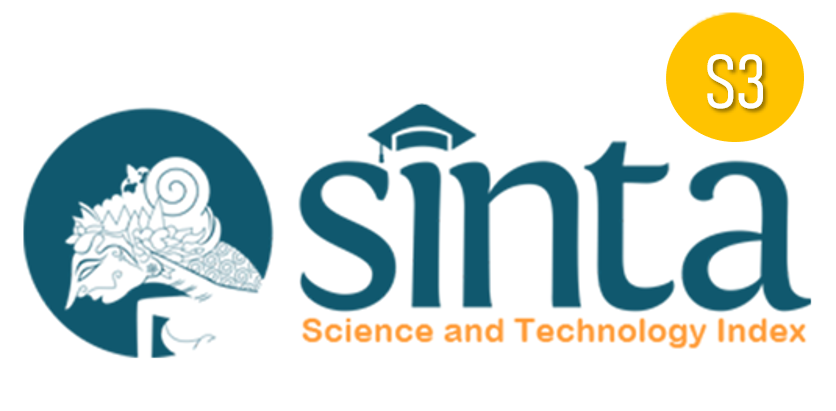Development and Evaluation of Lessoncast in Learning Selected Basic Technology Concept in Ilorin Metropolis
Abstract
This study determined the development and evaluation of Lessoncast in learning selected Basic Technology concept in Ilorin Metropolis. The study adopted a design and development model type. The population for this study was 5 educational technology experts, 5 computer science experts and 5 basic technology teachers were randomly selected to participate in the study. Two research instrument were used in this study; a developed lessoncast on basic technology; an experts rating questionnaire for the selected experts. Percentage and mean were used to answer the research questions. The findings indicated that Lessoncast in upper basic technology can be successfully developed for teaching upper basic technology. Educational technology experts agreed that developed lesson cast satisfied the required expectation. This study concluded that the visual aids or materials such as lesson cast work as a powerful tool in the classroom and can be used to enhance the teaching of basic technology in Nigeria. The implication is that if Lessoncast is properly integrated into teaching and learning, it will concretize the teaching and learning of basic technology concept. Therefore, the study recommended that schools should make resources such as the Internet and computers available to basic technology teachers so as to design and develop appropriate classroom learning and teaching materials that would help to explain concepts in basic technology better.
Keywords
Full Text:
PDFReferences
Ahmad, T. B. T., Doheny, F., Faherty, S., and Harding, N. (2013). How instructor-developed screencasts benefit college students' learning of maths: Insights from an Irish case study. The Malaysian Online Journal of Educational Technology, 1(4), 12–25.
Alexiou, A., and Paraskeva, F. (2010). Enhancing self-regulated learning skills through the implementation of an e-portfolio tool. Procedia-Social and Behavioral Sciences, 2(2), 3048-3054.
Elom, E. N., and Okolie, U. C. (2014). Impediments to effective teaching and learning of basic technology in Nigerian public secondary schools. IOSR Journal of Research and Method in Education (IOSR-JRME), 4(3), 45-51.
Federal Republic of Nigeria. (2004). National Policy on Education. Abuja: NERDC
Haxton, K. J., and McGarvey, D. J. (2011). Screencasting as a means of providing timely, general feedback on assessment. New Directions in the Teaching of Physical Sciences, (7), 18-21.
Lloyd, S. A., and Robertson, C. L. (2012). Screencast tutorials enhance student learning of statistics. Teaching of Psychology, 39(1), 67-71.
Martynova E. (2016). The Practice of English Language Teaching (4th ed.). Harlow: Pearson Education.
Nichols Hess, A., and Greer, K. (2016). Designing for engagement: Using the ADDIE model to integrate high-impact practices into an online information literacy course. Communications in Information Literacy, 10(2), 6.
Perry, T., and Perry, L. A. (1998). University students' attitudes towards multimedia presentations. British Journal of Educational Technology, 29(4), 375-377.
Richardson, D. (1997). Student perceptions and learning outcomes of computer-assisted versus traditional instruction in physiology. Advances in Physiology Education, 273(6), S55.
Shehu, R. A., Onasanya, S. A., Onigbinde, T. A., Ogunsakin, E. A., and Baba, D. A. (2013). Lifestyle, fitness and health promotion initiative of the University of Ilorin, Nigeria: an educational media intervention. Ethiopian Journal of Environmental Studies and Management, 6(3), 273-279.
Soetan, A. K., Ogunlade, O. O., Fakomogbon, M. A., Bolaji, H. O., and No, P. (2014). Availability and utilization of infor-mation and communication technology (ICT) in early childhood education in Ilorin, Nigeria. Journal of Science, Tech-nology, Mathematics and Education (JOSTMED), 10(3), 186-192.
Tan, C. (2008). Improving schools through reflection for teachers: Lessons from Singapore. School Effectiveness and School Improvement, 19(2), 225-238.
DOI: https://doi.org/10.17509/ijert.v2i1.36267
Refbacks
- There are currently no refbacks.
Copyright (c) 1970 Universitas Pendidikan Indonesia

This work is licensed under a Creative Commons Attribution-ShareAlike 4.0 International License.







.png)




